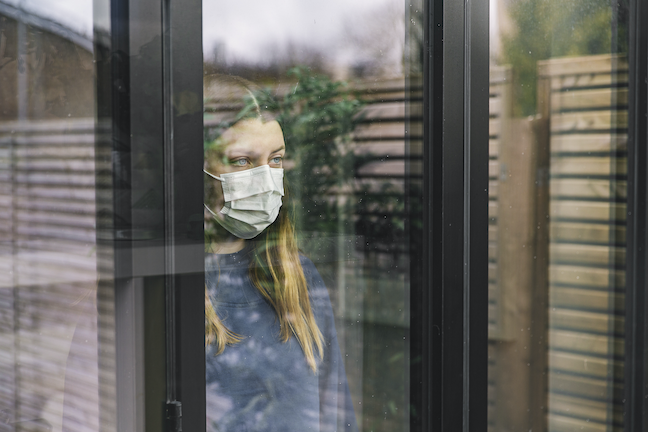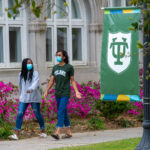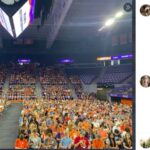More surveys ID students’ mental health struggles
 In a mental survey of 2,500 college students, 75% reported feeling more anxious or stressed, 57% said they lost their summer jobs and 90% want to return to campus in the fall. (GettyImages-1213531529/
Justin Paget)
In a mental survey of 2,500 college students, 75% reported feeling more anxious or stressed, 57% said they lost their summer jobs and 90% want to return to campus in the fall. (GettyImages-1213531529/
Justin Paget) Between 75% and 85% of college students are experiencing ongoing stress and anxiety during the coronavirus outbreak and campus closures, according to two surveys of mental health in higher education.
In a survey of 2,500 students, 75% reported feeling more anxious or stressed, 57% said they lost their summer jobs and 90% want to return to campus in the fall, according to a survey by Core Spaces, a student housing development company.
The company emailed the survey in early June to students living at 19 of its properties in 11 states. Responses were collected from June 2 to June 9.
“These important survey results speak to a wide range of ways the pandemic has impacted our young people,” Marc Lifshin, founder and chief executive officer of Core Spaces, said in a news release. “Their responses provide valuable insight into how college students are hurting and what they want.”
More from UB: What do students think of online learning? 2 surveys shed some light.
The survey also found that 72.5% of students want to return to campus even if instruction remains online though 60% said online learning had been a negative experience. However, nearly eight out of 10 said they’d be more successful studying remotely in their campus apartments rather than at their family homes.
Among the survey’s other findings:
- 90% of respondents were either “very confident” or “somewhat confident” that their universities would take measures to protect them the coronavirus.
- 20% of students were “much less confident” and more than 40% were “somewhat less confident” about future job prospects.
- 76% reported their sleep patterns had changed and 12% had sought physical or mental health treatment.
- 63% said they were very likely to take a vaccine when it becomes available.
Core Spaces will offer mindfulness and meditation programs to its 15,000 residents starting late August while incorporating a rigorous sanitization program, Lifshin said.
“There are so many unknowns around COVID-19,” he said, “We, along with other student housing providers, need to do all we can to reduce the stress that students are feeling and increase their sense of comfort.
Top causes of mental health challenges
Female college students reported higher rates of stress (93%) compared to male students (78%), in a survey conducted by TimelyMD, a telehealth company that specializes in higher education.
More from UB: Who is making the strongest case for in-person learning?
The top three causes of students’ stress and anxiety were: uncertainty about the future of their education, falling behind in their coursework and struggling with remote learning.
Beyond academics, a significant number of students are also worried about future career prospects and their own health as well as the well-being of loved ones.
“Students’ mental health concerns do not take the summer off,” Dr. Alan Dennington, TimelyMD’s chief medical officer, said in a news release. “The hazy outlook for a safe return to campus only adds to the emotional toll of students’ sustained feelings of fear, uncertainty and isolation relating to the coronavirus.”
Despite the rise in stress and anxiety, only 21% of students surveyed reported seeking treatment from a licensed counselor or behavioral health professional.
Finally, the survey found that 65% of students have turned to TV, movies and streaming services as a way to cope during the pandemic. Other popular coping mechanisms included video calls (59%), phone calls (58%), physical exercise (50%) and spending time outdoors (47%).
UB’s coronavirus page offers complete coverage of the impacts on higher ed.



